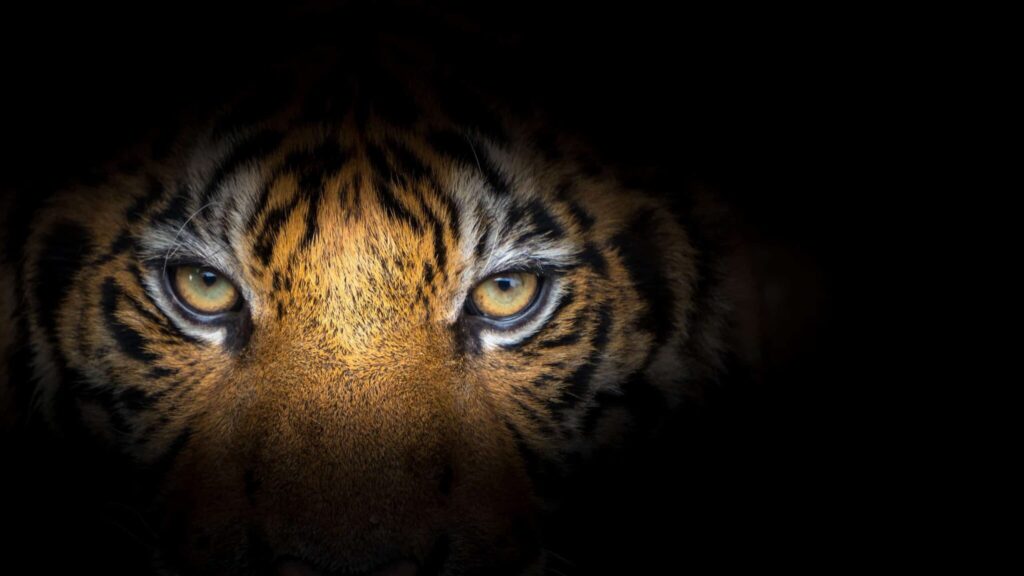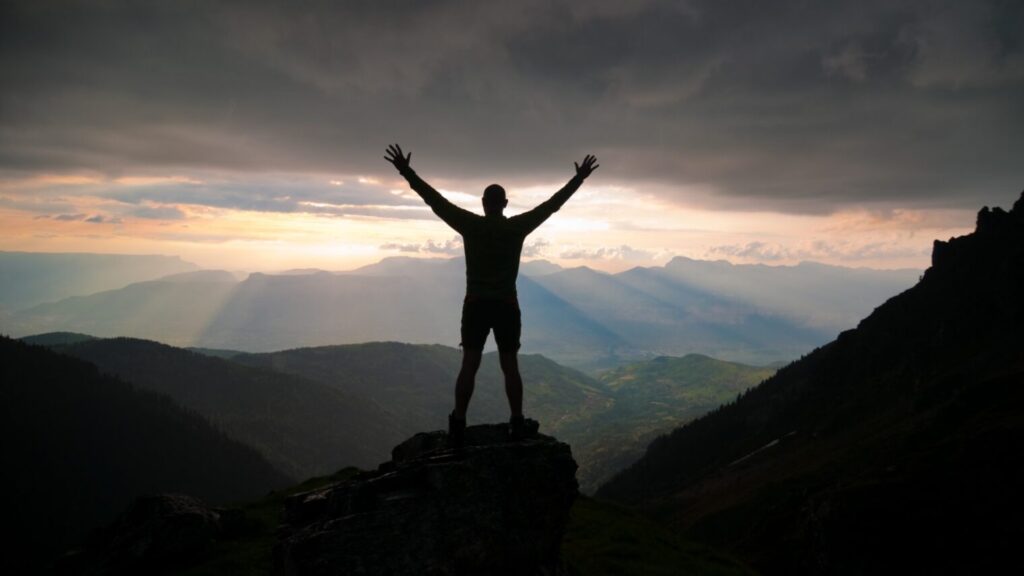
“Liberation doesn’t happen by liberating from this animal part of ourselves. It’s liberating the animal to develop into what it really means to be a real human being in the world.”
-Karen Johnson
The Power of Divine Eros
Insights at the Edge interview with Tami Simon, A.H. Almaas, and Karen Johnson
Throughout human existence, the survival instinct has been faithfully operating outside of conscious awareness, invisibly shaping our behavior and guiding our lives. It serves as our fundamental operating system, compelling us to survive and thrive individually as a body/self and collectively as a species. It is the driving force behind our quest for basic human needs, and like the sexual and social instincts, it has become distorted though the patterning of our consciousness by physical, psychological and cultural influences.
As explored in previous blogs of this series, working with our primordial instincts can support us in liberating these drives from their patterning, thereby experiencing and understanding the initial intelligence of their primal origins. With the correct orientation, these energies can function in a healthy and optimizing way and support our capacity to function in the world from a more complete and mature human perspective – one that is not solely focused on physical survival. When worked with and developed, the survival instinct becomes the freedom of life force itself – expressing vibrancy, expansiveness, and the goodness of spirit functioning in the world, simultaneously attending to our physical needs in a balanced way.
Despite the vast potential for spiritual development, it is rare for an individual to know the liberated expression of our survival instinct. It’s common to be on a spiritual journey for decades and never come across practical guidance on working with our innate impulses in a way that supports both our realization and how we can embody it in our daily lives.
Historically, many religious and spiritual traditions have ignored, suppressed, feared, or tried to control the raw power and distorted expressions of the survival drive. While acknowledging how the distortions create barriers to our spiritual development is necessary, this alone does not address the powerful opportunity to understand, clarify and align this essential instinctual energy with the drive for enlightenment and its expression in the world.
To open the potential of this instinct, it’s important to have a direct sense of it, but first we need to understand how its distortions appear in our daily lives. As we delve into these and illuminate their true intention, we can explore what’s possible when we learn how to work with this transformative force.
When we directly engage with the present-moment experience of the survival instinct, we encounter its raw vitality – a primal force that imbued our ancestors with the capacities needed to successfully navigate the wildness and unpredictability of daily existence. This drive is full of aggression and fear, the fight and flight aspects of our sympathetic nervous system, which gave us the strength to hunt for food, defend ourselves, and to discern and escape from danger to support physical existence. These same energies still propel our quest for basic human needs for shelter, food, health, and enough financial resources to live a good life.
In many parts of the world today, people’s basic daily needs are not met, and daily life is necessarily dominated by the survival drive to stay alive. Typically, these fundamental human needs must be sufficiently met to engage with a spiritual path in a fruitful way.

We can also see what it looks like in the world when the survival drive plays out in distorted, competitive forms. When our motivation comes from fear and aggression, we can lose contact with what is enough food or money. Compelled by greed, we strive to attain more and more in a way that is out of balance with others. Alternatively, fear and aggression may paralyze rather than motivate us, making it difficult to provide for our basic needs in a full and consistent way. Collectively, this distortion can create a tribal mentality, resulting in increasing polarization and global crises that paradoxically threaten our very survival.
This instinctual sense of threat – enough versus not enough, mine versus yours – can manifest in irrational responses to simple, everyday situations. For example, despite feeling calmness and oneness after meditation class, a quick stop in a crowded grocery store where we bump into a stranger can stir up defensive reactions even when there is no actual threat to survival. These reactive modes can escalate into aggression and hostility, dramatically reducing our ability to act with kindness and generosity. One moment we experience the truth of unity, the next we are a separate individual in conflict or competition with an “other”.
The instinct for survival becomes mixed into our natural adaptation and conditioning. Through our early experiences with caretakers and then the world, the creation of the separate self becomes the channel for the survival energies. What was the survival of the body becomes the survival of self that shows up in our emotional reactivity. Growing up, we must be what our environment dictates for us to survive. Due to the instinct for self-preservation, we acquiesce to coercive forces in the environment. We are conditioned to be and to act in certain ways that become so ingrained that we take them to be our identity. Slowly, we forget our true identity and become the self we are conditioned to be and to believe.
Unexplored, the survival instinct narrows our focus to the preservation of body and of the separate self, habitually orienting us to self-centeredness. Ultimately for most, the drive for survival is the drive for the survival of the conditioned self.
Given the prevalence of natural distortions, it’s understandable that most people do not know how to reconcile our survival drive with our spiritual practices. So, what is possible when we engage with this primal power as a fuel for our spiritual development?

Working with and liberating the survival drive opens a world of transformative possibilities, freeing us from limitations and strengthening resiliency to live a life of purpose and fulfillment. Rather than succumbing to fear and defensiveness, we learn to approach obstacles with a sense of curiosity, openness, and adaptability.
As the survival instinct becomes more spiritualized, it becomes the purity of the life force, expressing itself more completely – flowing in a way that’s more aligned with our love of the inner truth. There’s a vivaciousness, power and harmlessness that makes our engagement in life feel rich and fulfilling.
Unhindered by a preoccupation with base survival, the body now has the direct knowledge of what it means to be in the world in a new way. Rather than self-preservation, the expression of spiritual realization becomes the driving force.
The Diamond Approach teaching understands that complete liberation doesn’t happen by moving away from this instinctual and worldly part of ourselves. We need to honor the drives for their rightful place in our physical existence, at the same time we must learn to hold them with the perspective that the physical dimension is only one of many that we inhabit.
By engaging with specific meditation and inquiry practices, we can experience unconditioned purity becoming more dominant, expressing itself through all our instincts – social, sexual and survival – so we can both enjoy life in the world and know we are something beyond it. In this way, we embody what this transformative approach is about: how to be in the world fully embodied – animal and angel in harmony – as a true human being.
Learn How to Work with Your Instincts as Fuel for the Spiritual Journey

If this blog resonates with you and you are interested in exploring your instincts further, join us for Human Instincts on the Spiritual Journey, a course taught by A.H. Almaas (pen name for Hameed Ali) and Karen Johnson. Through teachings and inquiring into your own experience in our global online community, you can take a deep look at your social, sexual, and survival instincts to see how they became impediments to your full realization. Bringing conscious awareness to these inner processes has the potential to liberate your instincts from historical conditioning and to support your embodiment as a fully realized human being.
New to this Topic?
Learn More in Realization in the Rough, a free talk with A.H. Almaas and Karen Johnson

Enjoy this video recording with Diamond Approach co-founders, A.H. Almaas (pen name of Hameed Ali) and Karen Johnson, to learn more about the instincts including how they are showing up in our daily lives and how working with them allows us to bring more light and consciousness into the world.
